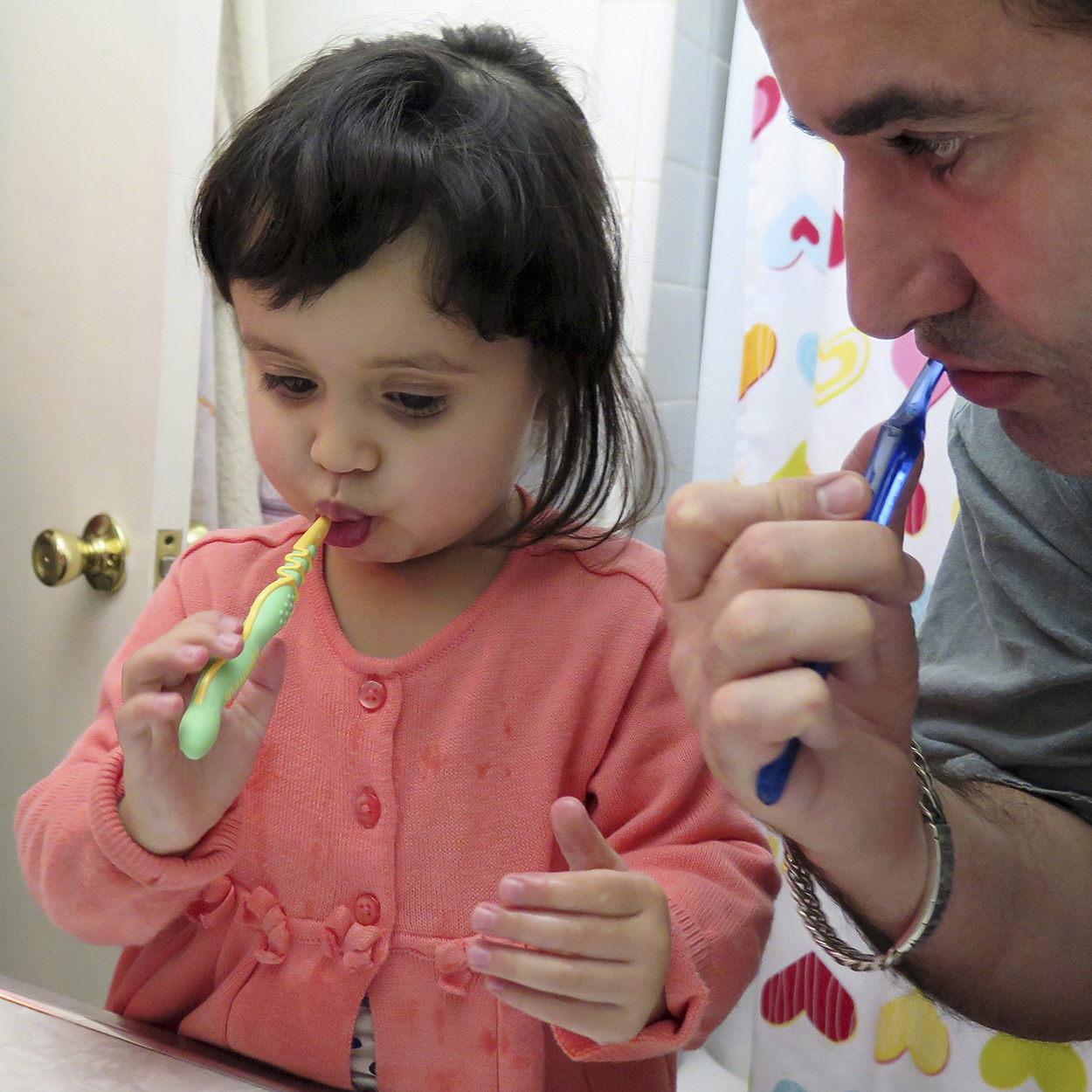Coming Soon: New Building for Children's Specialty Care
Our new Children's Health Specialty Clinics building will bring 30 pediatric specialties together under one roof, making it easier for families to get expert care.

Most pediatric dentists agree that regular dental care should begin by 1 year of age, with a dental checkup at least twice each year after for most children. Some children may need more frequent evaluations and care. The American Academy of Pediatric Dentistry (AAPD) recommends the following:
Clean your baby’s mouth with gauze or use a soft infant toothbrush after feedings and at bedtime.
Ask your child's health care provider or pediatric dentist about fluoride supplements if you live in an area without fluoridated water.
Also ask about fluoride varnish, which is applied to the teeth.
Breastfeed your baby, if possible. Breastfeeding can be challenging for many reasons. Talk with your health care team for support if needed.
During this time, the first tooth should appear. See a pediatric dentist for an exam.
Brush teeth after each feeding and at bedtime. Use a small, soft-bristled brush and a very small amount of fluoride toothpaste, about the size of a grain of rice.
As your child begins to walk, stay alert for possible dental or facial injuries.
The American Academy of Pediatrics recommends giving only breastmilk for at least 6 months. The AAPD recommends breastfeeding for at least 1 year if possible. At about 1 year, continue to breastfeed or begin weaning as you and your baby are ready. Talk with your child's provider about adding other types of food to your baby's diet.
Follow the schedule of dental exams and cleanings, as recommended by your child's pediatric dentist. Generally, dental exams and cleanings are recommended every 6 months for children and adults.
At about age 3, as your child learns to rinse and spit, brushing with a pea-sized portion of fluoridated toothpaste is appropriate, in most cases. Always supervise your child to make sure they don't swallow toothpaste.
Correct care of a child's baby or primary teeth is very important. These teeth hold space for the future eruption of permanent teeth.
If a baby tooth decays or is removed too early, the space needed for the permanent teeth is lost. It can only be regained through orthodontic treatment.
Infected baby teeth can cause the permanent teeth to develop incorrectly. This results in stains, pits, and weaker teeth.
Primary teeth are important in speech development.
Primary teeth aid in chewing food correctly, promoting healthy nutrition.
Most children begin losing their baby teeth around ages 5 or 6. Often the front teeth are first. They continue to lose baby teeth until age 12 or 13 when all of the permanent teeth finally come through, except for the wisdom teeth (third molars). These molars begin to appear around ages 17 to 21.
The AAPD recommends the following to make sure that your child eats correctly to maintain a healthy body and teeth:
Ask your child's dentist to help you assess your child's diet.
Don't routinely stock your pantry with sugary or starchy snacks. Buy "fun foods" just for special times.
Limit the number of snacks and choose nutritious snacks.
Provide a balanced diet. Serve age-appropriate foods to your child, including fruits, vegetables, whole grains, low-fat dairy, and lean protein. Stay away from sugary drinks and juices.
Don't put your young child to bed with a bottle of milk, formula, or juice. This increases the risk of tooth decay.
Our new Children's Health Specialty Clinics building will bring 30 pediatric specialties together under one roof, making it easier for families to get expert care.